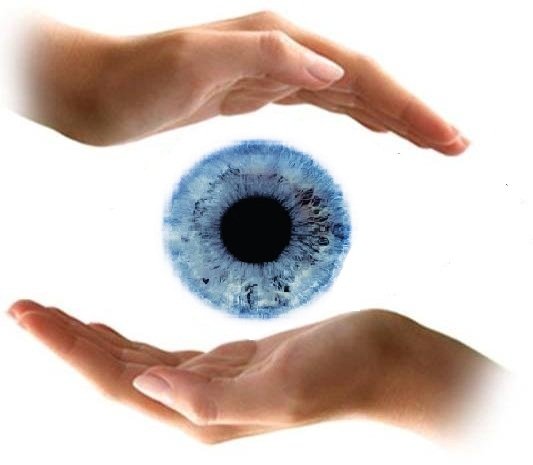All Categories
Featured
When it involves sunlight security, the majority of people focus on shielding their skin from unsafe UV rays. The results of UV radiation on your eyes are similarly vital but frequently neglected. Long term direct exposure to ultraviolet (UV) rays can bring about different eye problems, a few of which may result in permanent damages or vision loss. Whether you're outdoors on a warm coastline or taking a walk on a cloudy day, comprehending exactly how UV rays influence your eyes and finding out exactly how to protect them is essential for maintaining healthy and balanced vision.
What Are UV Rays and Exactly How Do They Influence the Eyes? UV rays are a form of unnoticeable radiation released by the sunlight. There are three sorts of UV rays:
UVA Rays: These pass through deeply into the skin and eyes, contributing to long-term damage. UVB Rays: These are extra intense and can cause surface-level harm, such as sunburn or corneal damage. UVC Rays: These are one of the most unsafe but are absorbed by the Earth's atmosphere and hardly ever pose a straight threat. Both UVA and UVB rays can damage numerous parts of the eye, consisting of the cornea, lens, and retina.
Short-Term Results of UV Exposure. Even a short duration of extreme UV exposure can harm your eyes. A typical problem arising from this is photokeratitis, frequently called "sunburn of the eye." Signs consist of:
Uncomfortable or red eyes. Sensitivity to light. Excessive tearing. Momentary fuzzy vision. Photokeratitis is generally short-term yet works as a suggestion of the immediate dangers of UV radiation.
Long-Term Impacts of UV Exposure. Collective UV exposure gradually can cause a number of severe eye conditions, consisting of:

Cataracts: UV rays increase the advancement of cataracts, a condition where the lens of the eye comes to be over cast, causing vision impairment. Cataracts are a leading root cause of loss of sight worldwide.
Macular Degeneration: The macula, a component of the retina in charge of central vision, can be harmed by long term UV direct exposure, enhancing the danger of age-related macular deterioration (AMD)
Pterygium: Frequently called "surfer's eye," this condition entails a growth of cells on the white part of the eye, which can expand over the cornea and hinder vision.
Pinguecula: UV direct exposure can trigger yellowish spots to base on the conjunctiva, bring about irritation and pain.
Skin Cancer Around the Eyes: The delicate skin surrounding the eyes is very prone to UV radiation, enhancing the danger of basal and squamous cell carcinoma.
Securing Your Eyes from UV Damage. The excellent news is that protecting your eyes from UV radiation is straightforward and reliable. Below are some necessary ideas:
Use UV-Blocking Sunglasses. Choose sunglasses that obstruct 100% of UVA and UVB rays. Seek tags indicating "UV 400" protection. Wrap-around styles give extra coverage, preventing UV rays from entering from the sides.
Utilize a Wide-Brimmed Hat. A hat with a broad brim can block virtually 50% of UV rays, providing additional protection for your eyes and the fragile skin around them.
Stay Clear Of Top Sunlight Hours. UV rays are greatest in between 10 a.m. and 4 p.m. Decrease your outside exposure during these hours, or ensure you're adequately shielded if you require to be outside.
Shield Your Eyes Year-Round. UV rays are present year-round, even on gloomy or snowy days. Snow, sand, and water can show UV rays, increasing their effects. Make sunglasses a part of your everyday regimen, regardless of the season.
Take Into Consideration UV-Blocking Get In Touch With Lenses. Numerous get in touch with lenses now offer UV protection, which can be an extra safeguard when coupled with sunglasses.
Urge Eye Security for Kids. Kid's eyes are extra susceptible to UV damages since their lenses are clearer, enabling more UV light to reach the retina. Guarantee they put on sunglasses and hats when playing outdoors.
Arrange Normal Eye Examinations. Regular visits to an eye treatment expert are crucial for checking your eye health and wellness. An optometrist can discover very early indications of UV-related damage and suggest remedies, such as prescription sunglasses or UV-blocking glasses customized to your needs.
Final thought. UV rays may be unnoticeable, however their impact on your eye health and wellness is very genuine. Bear in mind, your eyes are one of your most beneficial assets-- take the needed steps to shield them from unsafe UV rays today.
Latest Posts
Uncover the Top Auto Repair Deals in Montclare, Chicago
Discover Brake Repair & More: Comprehensive Auto Care Solutions from Montclare Auto Repair
Explore Your Financial Partner at WyHy – Top Benefits for Your Financial Goals
More
Latest Posts
Uncover the Top Auto Repair Deals in Montclare, Chicago
Discover Brake Repair & More: Comprehensive Auto Care Solutions from Montclare Auto Repair
Explore Your Financial Partner at WyHy – Top Benefits for Your Financial Goals